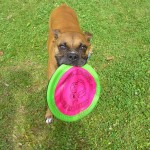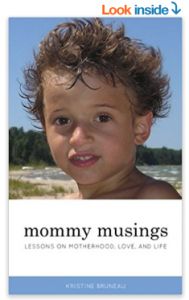 Where do all the lost things go?
Where do all the lost things go?
Whenever I drop something like an earring or contact lens I always say aloud: “An apple never falls far from its tree.” I think I picked up that little gem from my Mom – or was it my Dad? (My parents frequently say stuff like that to be helpful.) Regardless, 9 times out of 10 this little mantra works! I find what I dropped and go merrily about my day. (It does help to search immediately after you drop something like your contact lens. If you wait until the next morning, the lens is hard and useless, unlike a frisbee.)
One day, however, I misplaced a gift card. I remember taking it out of the messy junk drawer and sticking it in my wallet. I raced out the door to make my hair appointment. I think I thought I might be able to swing by Target to use the card. But after my hair cut I got gas, bought a few bottles of much needed wine and then I stopped by Wegmans for “just a few things.” A few hundred dollars later, I realized I didn’t go to Target and couldn’t find the gift card.
I checked the car. I checked my wallet. I checked Rob’s wallet. I checked the junk drawer. I checked my receipts. I checked everywhere: my office, the garage, the garbage. Later that night, I re-surfaced from the depths of searching hell empty-handed and frazzled.
Why do we misplace things?
Researchers believe that everyday memory lapses may be impaired by interference in daily activities or as a result of bad genes. So it seems that there’s little hope for me since I suffer from una mas and have no interest in getting an MRI to find out my gene history. Since my apple mantra failed to produce the gift card. I was desperate. So I turned to the oracle of Google and typed ‘how to find lost things.’ I discovered Professor Solomon’s goofy site that promised to help losers like me find missing objects. Easily. By following his 12 principles I wondered if it would help me find other small things – like my mind.
1. Don’t look for it…
(That’s his number one principle?) … until, he says, you have a clue as to where to look. Jeez. If I knew where to look, I hope I would have found it by now.
2. The thing you lost isn’t really lost, but you are.
Nope. I know exactly where I am, but I could be more systematic about my search and not tear off any more drawer hinges.
3. Embrace the three C’s of comfort, calmness and confidence.
Quit terrorizing your family (and the dog), he says. Sit down, calm down, and assure yourself that you will find the thing you lost. If that doesn’t work, try step 4.
4. It’s where it’s supposed to be.
But it’s not. So I go to step 5.
5. Domestic Drift.
Now this really struck a chord with me. Domestic Drift is an interesting concept and the antithesis to mise en place [MEEZ ahn plahs] that roughly translates to “everything in place.” While I often have designated places for things, I move stuff around all the time and rarely (if ever) put things back in the chosen spot when I’m done. So I tried to remember the last place I stashed the card: my wallet. No matter how often I looked in my wallet, it did not magically appear.
6. You’re looking right at it.
Right. I sing to myself in my tuneless voice: “Card, card, card. Where, Oh where can you be? / I’ve searched the house over / And retraced my steps / you see / You’re just not where you’re supposed to beeee!”
So now it was after midnight. I’m tired and bored with the Professor, but I still have steps 7 through 12 to get through plus a lot more pages in his e-book (although I believe that I did all this before I found the Professor).
Steps 7-12 (with a twist)
7. the camouflage effect (the dog ate it and now you have to wait for him to poop it out)
8. think back (put your thinking cap on – it helps to pour yourself a glass of wine, first)
9. look once, look well, and don’t go back and check again (what kind of advice is that?)
10. the eureka zone (same thing as an apple never falls far from it’s tree, which I always use first!)
11. tail thyself (the ol’ re-trace your steps step that everyone knows)
12. it wasn’t you (it was the dog)
Bonus tip: the object is not ready to be found
After looking for the card until I couldn’t see straight, I realized: Maybe it’s not ready to be found! The card will remain on the island of lost things (along with hundreds of frisbees, earrings, and nuts) until it’s good and ready to be discovered. So there was nothing more I could do about finding the card.
Until the next lost object!
Have you lost something and then found it? I want to hear your story. Send me an email., post a comment on my blog or Facebook, or Twitter.


It was in your wallet, wasn’t it.